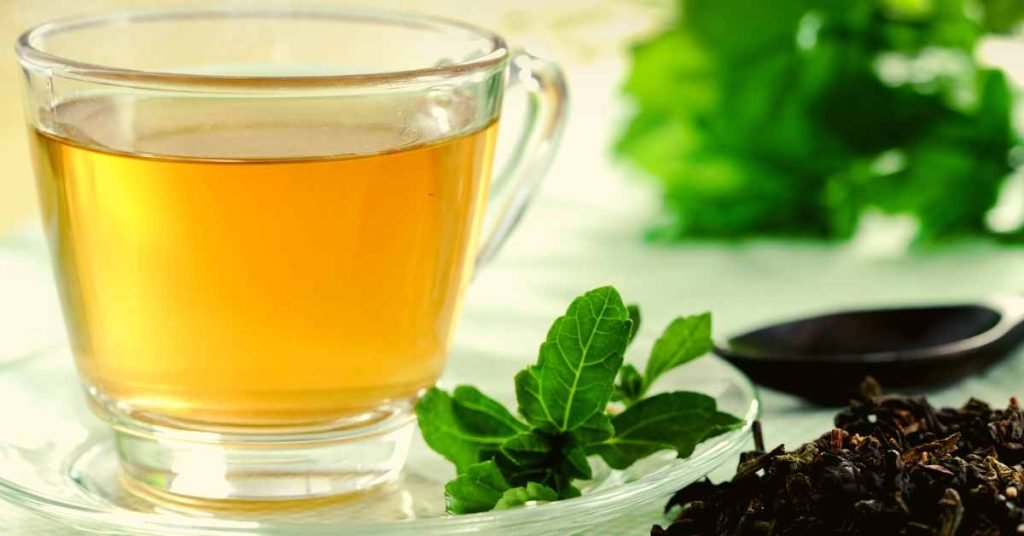Can Green Tea Deplete Vitamin B1?
The magnificent properties that green tea has for the body have already been widely publicized.
But the truth is that it also has a substance that prevents the full use of thiamine, which is found in vitamin B1, essential for the functioning of the nervous system.
For this reason, it is necessary to take precautions with the excessive consumption of this tea.
Green tea has undeniably become one of the main natural sources when looking for totally healthy benefits.
Its consumption has increased by leaps and bounds in the world and its use far exceeds its original habitat. It is not surprising, given the wonderful powers it possesses.
But the truth is that green tea has some contraindications. However, there is nothing to worry about if you maintain moderate consumption of this extraordinary beverage.
Understanding Vitamin B1 and Its Importance

Vitamin B1, also known as thiamin, is an essential nutrient responsible for various vital functions in the body.
It plays a key role in converting food into energy, supporting proper nervous system function, and maintaining a healthy cardiovascular system.
A deficiency in vitamin B1 can lead to a condition called beriberi, characterized by fatigue, muscle weakness, and nerve damage.
The Thiaminase Factor
One of the main culprits behind tea’s potential to deplete vitamin B1 is an enzyme called thiaminase. Thiaminase is naturally present in certain foods, including tea leaves.
This enzyme has the ability to break down and inactivate thiamin, rendering it unusable by the body.
When tea is consumed, particularly in large quantities, the thiaminase in the tea leaves can interfere with the absorption and utilization of vitamin B1, leading to reduced levels of this essential nutrient.
Types of Tea and Thiaminase Content

It’s important to note that not all teas contain the same levels of thiaminase. Certain types of tea, such as black tea, green tea, and oolong tea, have been found to contain varying amounts of this enzyme. For instance, black tea has been reported to have higher thiaminase activity compared to green tea.
However, the precise levels can differ depending on factors like tea variety, processing methods, and brewing techniques.
Factors Influencing Vitamin B1 Depletion
Apart from thiaminase content, other factors can contribute to the potential depletion of vitamin B1 through tea consumption.
Steeping tea leaves for an extended period or using excessively hot water may increase the release of thiaminase, intensifying its impact on vitamin B1 levels.
Additionally, consuming large quantities of tea on a regular basis may further exacerbate the potential depletion of this vital nutrient.
Remember to keep your daily tea consumption up to four cups. Hummingbird Tearoom has the best organic teas on the market, so don’t hesitate to check the selection.
Mitigating the Impact

While tea’s potential to deplete vitamin B1 is a concern, it’s important to note that the risk of developing a deficiency solely from tea consumption is relatively low.
The overall dietary intake and nutrient balance play a crucial role in maintaining adequate vitamin B1 levels.
By adopting a well-rounded diet that includes other sources of thiamin-rich foods such as whole grains, legumes, nuts, and lean meats, individuals can mitigate the potential impact of tea on their vitamin B1 status.
Tea’s potential to deplete vitamin B1 through the action of thiaminase sheds light on an intriguing aspect of this popular beverage.
While the risk of a significant deficiency from tea consumption alone is minimal, it serves as a reminder to maintain a diverse and balanced diet.
By incorporating thiamin-rich foods and being mindful of brewing methods, tea enthusiasts can continue to enjoy their favorite beverage while ensuring their vitamin B1 levels remain within a healthy range.
Final Word
Ultimately, understanding this intricate relationship between tea and vitamin B1 allows individuals to make informed choices and prioritize their nutritional well-being.
Thiamine acts directly on the central nervous system, allowing the assimilation and degradation of carbohydrates, thus playing an important role.

Its low consumption or lack of use can lead to fatigue, poor mental performance, and depression.
For this very reason, avoiding its excessive consumption or resorting to allithiamine can be important issues to alleviate the poor absorption of thiamine that green tea produces.
All in all, you don’t have to worry about anything if you keep green tea consumption within a healthy range.
MEDICAL DISCLAIMER
Itsnevernotteatime.com cannot and does not contain medical/health advice. The medical/health information is provided for general and educational purposes only and is not a substitute for professional advice.




